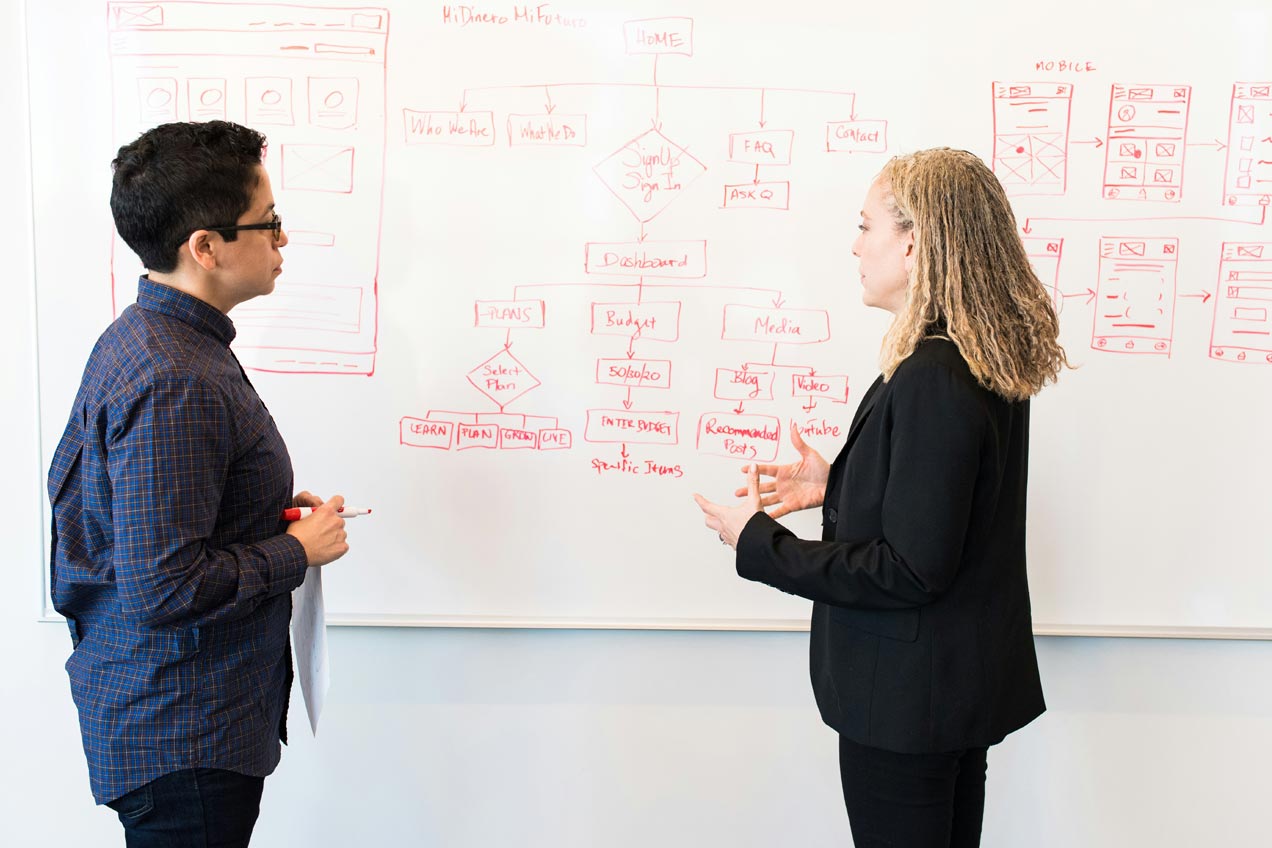MVP Development Services Company
Discover extensive MVP development services to suit your business idea or vision.
As one of the UK’s most trusted and experienced minimum viable product (MVP) development services companies with nearly 30 years in the industry, we aim to pivot your MVP product to reach actual users with core features that attract early adopters.
Delivering for our clients for almost 30 years
Choose Pulsion to Work with an MVP Developer Today
Our MVP Development Services in More Detail
Tailored MVP Development for Your Business Needs
We offer an extensive range of custom development services in the MVP development model designed to drive your business success with nearly 30 years of expertise in the development industry. Outsourcing software development services to our dedicated developers specialising in MVP development will lead to bespoke products with the potential to grow and scale faster than expected.
Our Pulsion team possesses the in-depth knowledge and technical skills to meet unique MVP system requirements, whether you need to outsource an MVP project segment or require a comprehensive, end-to-end enterprise solution. Our MVP development services company provides flexible solutions and engagement models to suit any custom project size, demand, and objectives, whether you need a fully dedicated team or one on-site developer to support your custom MVP development project.
Furthermore, other technologies in which our MVP development teams can deliver custom software solutions include:
Cutting-Edge MVP Mobile App Development Services
From the outset, we’re passionately committed to delivering state-of-the-art MVP mobile app development services. Our expertise as a trusted mobile app development company covers iOS, Android, and cross-platform applications, ensuring a seamless and engaging user experience. Here are some mobile app development services in which we offer MVP development:
- Android app development
- Custom iOS app development
- Hybrid app development services
- React Native app development
Our dedicated teams create performance-optimised, high-quality MVP mobile applications with the latest technologies and frameworks, including Swift, Java, Flutter, Ionic, Xamarin, Kotlin, and React Native. Here are some dedicated mobile app developers for hire:
Our MVP mobile app development services focus on user-friendly UI/UX design with a robust backend infrastructure, leveraging cloud computing and advanced database management systems to ensure reliability and scalability. Our MVP developers prioritise collaboration and clear communication throughout the MVP development process, employing Agile methodologies to align each project’s objectives. Our MVP mobile app development approach enables us to craft unique, impactful MVP mobile apps that exceed client’s expectations.
Leading MVP Web Development Services
Our MVP Tech Stack
Frontend Stack
The frontend stack includes everything the user interacts with, such as the hardware or software within mobile and web applications. Our team develops their mobile MVP app stack, UX, and UIs with the following Kotlin, Swift, and React Native. On a side note, the stages of mobile app development show requirements gathering and testing steps similar to an MVP process.
Backend Stack
Our backend tech stack includes everything server-side.
Content Management Systems (CMS) – We collaborate with you on platforms you likely use already, including WordPress, Joomla, and Drupal. We love nurturing talent at Pulsion, so rest assured that your CMS is shared knowledge, even from our least experienced developers.
Programming Languages – Our team uses programming languages like JavaScript, Python, Java, C#, and Ruby. Unsurprisingly, JavaScript and Python are the two of the most in-demand programming languages.
MVP Frameworks – We use well-known MVP project frameworks like Django, Ruby on Rails, React Native, and Angular. Learn more about our take on using React Native vs. Flutter before picking the technology framework.
Database Management – Our database management systems include SQL and NoSQL, such as Cassandra, PostgreSQL, MongoDB, and MySQL. Fun fact: MySQL is one of the top global database management systems.
Cloud Service Partners – We partner with Microsoft Azure, Amazon Web Services, and Google Cloud cloud service providers. Our AWS vs. Azure vs. Google Cloud platform comparison article can help you pick the desired provider.
DevOps & Automation – Our team uses Docker, Jenkins, Kubernetes, and Git automation tools. Interestingly, a Harvard Business Review survey found that 86% of companies believe DevOps and fast software production give them a competitive advantage.
Machine Learning/AI – Artificial intelligence plays a major role in MVP development and feedback. We work with the Scikit Learn, Tensorflow, and Pytorch automation tools. Artificial intelligence and machine learning are the latest trending software design tools.
Security/Encryption – Our team uses SSL and TLS to protect your data, including OAuth and JWT. Did you know that worldwide data security has an annual growth rate of 13.01%? Security is a must!
Data Analytics – Your data analytics help to improve your product, and our MVP development teams use Power Bi, Apache Hoop, and Tableau. Did you know that 91.9% of companies extracted measurable results from data analytics in 2023?
Databases
The database of choice depends on the cloud that hosts your MVP product. Some databases are shown below each cloud platform.
Microsoft Azure Databases – Azure Database for MariaDB, Azure SQL Database, Azure Cache for Redis, and Azure CosmosDB.
AWS Databases – Amazon DynamoDB, Amazon RDS, Amazon Redshift, and Amazon ElastiCache.
Google Cloud Databases – Cloud SQL, BigQuery, BigTable, and AlloyDB.
Key Benefits of Developing an MVP Project
Drive Your MVP Development Project Forward
We’ve got your tech stack covered
We are proficient in various MVP programming languages, tools, and frameworks for backend and frontend deveopment.


Our Step-By-Step MVP Development Process
Here’s what to expect from our MVP development stages, some containing multiple steps and processes.

Case Study: Pulsion’s Collaboration With Accourt
Pulsion had the opportunity to spearhead a groundbreaking overhaul project for one of the UK’s biggest financial institutions, Accourt. The previously outdated and ill-performing Fraud Management system built on a SharePoint foundation had multiple challenges, some including a lack of scalability, user interface defects, and failed reporting. So, Pulsion’s dedicated teams implemented an avante-garde serverless solution hosted by our trusted Amazon Web Services (AWS) partner. The robust, cost-effective, and scalable replacement immediately revolutionised how Accourt’s customers interacted with their system.
Our dedicated team’s AWS serverless architecture provided scalability, enhanced overall system reliability across multiple availability zones, eliminated maintenance issues, and reduced infrastructure costs. Today, Accourt’s new serverless system handles 20,0000 transactions and accommodates over 2,000 users monthly without setbacks. The forefront system also passed multiple independent audits to highlight our team’s dedication and commitment to delivering optimal-quality products. Accourt’s Managing Partner, Vaughan Collie, continues to praise the system’s outcomes, robustness, and optimised efficiency.

Our MVP Developer Models at Pulsion
Additionally, we provide three tailored developer engagement models to align with your business requirements. Our skilled developers are adept at handling complex challenges, equipped with a deep understanding of your business objectives and needs.
Option 1 – Extended Team Augmentation Model
This model is ideal for businesses that already have an MVP development team in place but require additional expertise in specific areas, such as React development. By augmenting your existing team with external specialists, you can fill skill gaps without the need for permanent hires. This approach is particularly useful for:
- Projects requiring temporary enhancement in expertise.
- Short-term, intensive MVP development phases.
- Incorporating specific technical skills not present within your in-house team.
Be mindful of potential challenges such as time zone differences that may affect collaboration.

Option 2 – Project-Based Dedicated Development Model
Opt for this model when your MVP requires a dedicated team solely focused on its development from start to finish. This setup provides a cohesive team working exclusively on your project, ensuring dedicated resources and attention. It’s suitable when:
- You have a clearly defined MVP scope but lack the internal resources to execute.
- The MVP development demands a full-stack team with varied skill sets.
- You prefer to have a single point of accountability for the entire project lifecycle.

Option 3 – Fully Managed Team Model
Choose this comprehensive model for end-to-end MVP development where the service provider manages the entire project. This model is most effective when:
- You need to focus on core business activities while experts handle MVP development.
- The project requires cross-functional expertise, from ideation to market launch.
- You seek a turnkey solution with minimal involvement in day-to-day development activities.

Book a Free Consultation Today
Receive custom MVP solutions, estimates, and recommendations. One of our expert managers will be in touch with you shortly.
MVP Development Services FAQs
General Information
The MVP, or minimum viable product, is a strategy in product development where a basic version of a product is launched with enough features to satisfy early adopters. Its primary goal is to gather feedback and validate assumptions early in the development cycle. By releasing an MVP, software teams can quickly learn from user interactions and refine the product based on real-world data. This iterative approach not only reduces the risk of developing features that customers may not want but also accelerates the time to market. Thus, the MVP model enables businesses to optimise resources effectively while focusing on delivering core value to their target audience.
The purpose of MVP, or minimum viable product, software development is to swiftly validate a business idea by launching a basic version of the product. This initial release includes essential features aimed at attracting early adopters and gathering valuable user feedback. By soliciting input from real users early in the development cycle, MVP enables rapid iteration and refinement of the product based on actual market needs and preferences. This approach minimizes initial investment and time to market, allowing businesses to efficiently validate assumptions, optimize resources, and ensure that subsequent development efforts are focused on features that deliver maximum value to customers.
In MVP development, three critical elements define its approach:
- Just Enough Features and Functions: An MVP includes only essential features that are adequate to address the core needs of early users. This minimalistic approach ensures that development efforts are focused on delivering fundamental value without unnecessary complexity.
- Early Customer Satisfaction: The product aims to satisfy the needs of its initial users or early adopters. By focusing on their requirements, MVP development validates assumptions and ensures that the product resonates with its target audience from the outset.
- Feedback for Iterative Improvement: MVP enables the collection of feedback from early users, which is crucial for refining and enhancing the product in subsequent iterations. This iterative process ensures that future development efforts are informed by real-world usage and user insights, leading to continuous improvement and alignment with market demands.
By incorporating these three elements into MVP development, businesses can effectively manage resources, accelerate time-to-market, and iterate based on actionable feedback to build products that resonate with their audience.
Timing and Decision-Making
The duration of MVP development can vary based on the complexity of the project:
- Basic Products: For simpler MVPs with essential features, development typically ranges from as little as one month to around three to four months. This timeframe allows for the initial version of the product to be launched quickly while incorporating necessary functionalities to gather user feedback.
- Complex Projects: More intricate MVPs that involve advanced designs or unique features may require a longer development period. In such cases, development can extend from six to nine months to ensure comprehensive testing, refinement, and integration of complex functionalities.
Ultimately, the timeline for MVP development is influenced by the project’s specific requirements and objectives. By aligning development efforts with the scope and complexity of the product, businesses can effectively manage timelines and deliver a robust MVP that meets user expectations and market demands.
Our 7-step MVP checklist will influence the development time. However, proper software development processes can distinguish between project success and failure. Some steps have multiple stages, resulting in 14 steps in our process. Here’s a quick overview of our 14 MVP steps and stages:
Step 1: The Discovery Phase
- a) Find and define the problem
- b) Find the target audience for the business idea
- c) Use requirements gathering to discover any relevant information
Step 2: Analyse the Market and Product
- a) Run a competitor analysis
- b) Design a simple prototype
- c) Gather initial feedback from invited users
- d) Do a strengths, weaknesses, opportunities, and threats analysis
Step 3: Design the Wireframe (Information Architecture Design)
- a) Prioritise and categorise features, tools, and ideas
- b) Plan and document user perspective designs
- c) Validate the product idea
Step 4: Develop the App/Software From the Wireframe for the MVP Stage
The fourth step of our MVP development process occurs when our MVP developers create the tech stack and project features to match the wireframe. In the project development stage, our developers create tangible products.
Step 5: Launch the MVP
Upon your approval, we launch your MVP project. It won’t be a low-quality product compared to others. It simply has the features and functions targeted to provide excellent user experiences and flow. Your product will be able to engage users if the first four steps work well.
Step 6: Gather Constant Feedback for Improvements
Step six is when we continue to help you gather user feedback about their experiences, shortfalls, and desired changes on your client’s side. Nothing improves your end software project better than user experience and feedback. Our team collects the data, which helps us recommend improvements.
Step 7: Support the Client & Optimise According to the Feedback
Our Artificial Intelligence Consultants use machine learning tools to provide support and optimisation strategies post-launch. User reactions will outline changes our team makes in the months after an MVP product launches. Our services include optimisation of user interfaces, features, and functions.
Developing a Minimum Viable Product (MVP) has several benefits that can streamline the product development process and enhance the likelihood of success:
- Cost and Time Efficiency: Focusing on essential features allows for quicker and less expensive product launches, ensuring efficient use of resources.
- Investor Attraction: An MVP can demonstrate product viability and customer interest, making it easier to secure investment.
- Focus on User Needs: MVPs prioritize solving user problems with a minimal set of features, allowing for user-centered development and subsequent iterations based on actual user feedback.
- Early Testing and Adaptability: Launching an MVP allows for early market testing and quick adaptation to user feedback and market demands, reducing the risk and impact of potential failures.
- Market Validation: An MVP provides critical insights by validating market demand and gathering early user feedback, which is invaluable for guiding future development to better meet user needs.
- Scalability: Feedback from early users helps in understanding necessary adjustments and new features, facilitating a scalable development approach.
- Competitive Analysis: Developing an MVP offers the opportunity to analyze the competition and create a strategy to offer a more competitive product.
- Understanding User Flow: Outlining user interactions within the product can identify potential improvements to enhance the overall user experience.
These advantages contribute to a more focused, user-centric development process that can significantly reduce risks and increase the product’s chances of success.
Costs and Financial Considerations
MVP developments could cost as low as £3,000 to overv£100,000, depending on the criteria, time spent on the project, and post-launch services. We only offer quality services at reasonable prices. On the other hand, full-blown software development could cost £40,000 to over £150,000.
When developing a Minimum Viable Product (MVP), several financial considerations come into play. These considerations ensure that resources are efficiently allocated and that the product can be brought to market without overspending. Key financial considerations include:
After MVP development, the next stage is typically the Minimum Marketable Product (MMP). This phase represents a progression from the MVP by enhancing the product with additional features and functionalities that align more closely with the business idea and customer feedback.
- Minimum Marketable Product (MMP): The MMP builds upon the MVP’s foundation to deliver a version of the product that is more refined and capable of serving a broader market. It incorporates essential features identified through user feedback during the MVP phase, ensuring that the product meets market expectations more effectively.
- Advancing with Client Feedback: During the MMP phase, businesses continue to iterate based on client feedback, refining the product to align more closely with market demands and strategic goals. This iterative approach minimizes investment risk while maximizing the product’s value proposition.
- Consulting on Next Steps: As a trusted MVP development company, we guide clients through the transition to MMP, discussing the implications for expected costs and further development. This collaborative approach ensures that the product evolves in a direction that optimally serves both business objectives and customer needs.
Transitioning from MVP to MMP allows businesses to validate their product idea comprehensively while strategically enhancing its marketability and scalability.
Selection and Evaluation
Yes, MVP mobile apps are popular choices for spending less, saving time, and using feedback to create stellar future products.
Hire dedicated developers from our software development company to launch an app fast while using the essential features and functions to save money and reduce risks.
Alternatively, hire ReactJS developers to ensure the user interface adopts early users quickly with your MVP app development.
Our minimum viable products development team works with you every step of the way, starting with a consultation. You’ll see some of our major clients and explore some benefits of working with us.
Proactive Collaboration Practices
We’ve delivered leading technological solutions since 1995, helping large enterprises and small businesses develop the ideal software to suit their needs. We share your business goals and would love for you to meet the team of MVP developers who will help you achieve maximum value.
Who Works on Your MVP Development Project?
A few people from our development team tackle your business idea to ensure it gets all the best skills:
- Business analysts
- MVP developers
- Project manager
- Software engineers
Choose Pulsion and Work with a Developer Today!
Integration and Collaboration
Yes, our MVP development services company can effectively integrate with your in-house team. We can offer expertise in different areas regarding mobile app development, including user interface experts and back-end developers. Regular communication, clear delineation of responsibilities, and regular communication ensure a seamless integration with your team, whether developing MVP products for web or mobile.
Our MVP Developer Models at Pulsion
We provide three tailored developer engagement models to align with your business requirements. Our skilled developers are adept at handling complex challenges, and equipped with a deep understanding of your business objectives and needs.
Yes, you can outsource remotely to our MVP developers for hire. Our flexible engagement models suit any business need and client resources. Discuss your remote MVP developer needs with our digital strategy consultants to learn more about how our team can serve you anywhere, anytime, even when working remotely in your time zone to fit your business times.
Project Management and Execution
Our Step-By-Step MVP Development Process: What to Expect
We use Agile methodology in our MVP development process to ensure you hit the right target audience, offer a good product-market fit, and entice clients to provide the feedback required for the next stage.
Here’s what to expect from our MVP services steps, some containing multiple stages and processes.
1. The Discovery Phase
Pulsion offers a comprehensive approach to MVP (Minimum Viable Product) development as part of their custom software development services, which bring several benefits to businesses looking to innovate and grow efficiently. Their services encompass machine learning app development, cloud migration services, and a custom-built software requirements tool to streamline the development process, ensuring that the solutions are intelligent, scalable, and perfectly aligned with business goals. The agile development methodology they adopt ensures flexibility, transparency, and collaboration throughout the software development lifecycle, allowing for adjustments based on feedback and evolving needs.
Pulsion is committed to adhering to the highest software development standards, including ISO, IEC, and IEEE standards, which provide a framework for scalability, reduce technical debt, and ensure quality, stability, and reliability in software products. This commitment extends to the full project lifecycle, emphasizing close collaboration with clients to enhance productivity, customer experience, and return on investment. Their partnerships with leading technology suppliers like Microsoft and Amazon Web Services further ensure that they can offer cutting-edge solutions tailored to specific business needs.
Choosing Pulsion for MVP development means benefiting from their nearly three decades of experience, a client-centric approach, and a track record of successful collaborations with entities like Innovate UK, NHS Scotland, and the University of Edinburgh. Their adherence to software engineering best practices and standards ensures that the MVPs developed are of high quality, secure, and aligned with the latest technological advancements.
Contact us today to discuss your MVP development needs.
Related Software Development Articles
How to Choose a Software Development Company
You obviously want the best software development company you can find as fast as possible to begin building your software…
How to Manage a Software Development Team: Valuable Insights, Tips, and Basic Principles
Knowing how to manage a software development team effectively as a project manager can distinguish a successful project from a…
Requirements Analysis for Software Development (Guide)
Wondering how to create a requirements analysis for a project. A requirements analysis is a much-needed early process software engineers…
Scale your business with innovative digital solutions.





